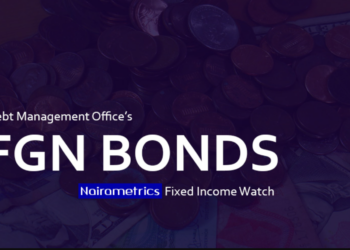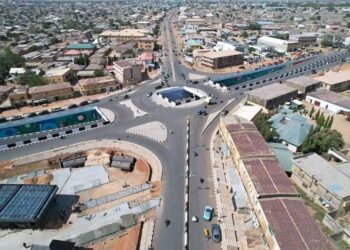The Central Bank of Nigeria (CBN), pursuant to its developmental functions and in a bid to further stimulate growth in the real sector, recently mandated Commercial Banks in the country to maintain a minimum Loan to Deposit Ratio (LDR) of 60% by 30th September 2019. To drive compliance, the CBN also prescribed a penalty of additional Cash Reserve Ratio (CRR) to the tune of 50% of the lending shortfall of the LDR target on any Deposit Money Bank (DMB) that does not attain the threshold by the given deadline.
According to figures recently made available by the regulator, additional N829.4 billion loans had been extended by DMBs between May and September 2019. This credit growth, for the CBN, is traceable to the new LDR policy and subsequentially, the CBN has reviewed the LDR requirements for DMBs from 60% to 65%, to be attained by 31st December 2019. Furthermore, in keeping to its threat of sanction for noncompliance, the regulator has slammed about N499.1billion on 12 banks as additional CRR for failing to hit the 60% LDR as at the stated deadline.
This article seeks to objectively appraise the justifications, implications and long-term workability of the LDR as a tool for determining credit flow and capital utilization. This is in view of the amount of interest this latest CBN’s move has generated.

Justifications for the LDR policy
Economic Recovery and Growth Plan (ERGP) Catalyst: After five successive quarter-on-quarter contractions in GDP, Nigeria exited its last recession in Q2 2017 and since then, the race has been on to ensure the economy goes at full throttle. For example, with a GDP growth rate of 0.8% in 2017 (from -1.6% in 2016), 1.9% in 2018 and a projected 2.3% growth rate in 2019 according to the IMF, the Nigerian economy seems to be on the path of recovery and growth intended by the government’s Economic Recovery and Growth Plan (ERGP). The thought in the minds of the nation’s economic handlers is that this growth rate can be ramped up with increased funding for the real sector. This is valid reasoning since inadequate financing had been identified as a major constraint facing the real sector of the economy.
The Nation’s Current Fiscal Structure: In recent years, Nigeria has embraced a deficit budgetary philosophy due to our expansionary stance. This particularly served us well during the recession and continues to serve us on the road to full economic recovery. However, to ensure that government securities remain attractive, the relevant agencies of the government such as Debt Management Office (DMO) and the CBN have had to offer higher interest rates (sometimes as high as 18%) to attract investors. Banks, being capitalists, have found this a veritable source of income with little or no attendant credit risks.
This is particularly so in the wake of skyrocketing Non-Performing Loans (NPL) issues that re-surfaced during the recession years. Even though appreciable progress has been recorded on the NPL front in the banking industry, given the reduction in the NPL ratio from 14.8% in 2017 to 10.8% as at March 2019, the fact remains that banks will still be skeptical about lending to the real sector until the economy achieves full recovery. Hence, investing in government securities to earn a risk-free handsome reward is more alluring. Suffice to then say that the CBN’s move to compel banks to lend more to the real sector is quite apt.
The Unemployment Situation: According to recent statements credited to the Minister of Labour and Employment, Dr. Chris Ngige, Nigeria’s unemployment rate is projected to reach 33.50% by 2020 from 23.1% in 2018. Combining this with the security challenges the nation currently battles with will connote substantial existential threats to the country. In the light of this, CBN’s LDR policy aimed at compelling banks to channel finance to SMEs (with the 150% weight incentive for LDR computations) is justifiable in a bid to avert the looming unemployment crisis because SMEs provide huge potentials for employment.
Implications of the new LDR policy on the banking industry
Notwithstanding the above justifications for the CBN’s LDR policy, below are some implications of the policy for the workings of a free market.
Undue Pressure on the Credit-granting Process: The credit process already poses enough challenges for most banks as they find themselves striving to strike the right balance between profitability and liquidity daily. The nature of this struggle has already been captured in my previous article titled – Profitability: A Bank’s Achilles Heel. Given that banks are capitalists and thus, naturally want to make money, this regulatory “backing” to make more money may ultimately be tilting the odds in favour of profitability over liquidity in the power scale.
Throwing Money at Problems: While it is true that inadequate finance is one of the challenges facing the real sector, the truth is there are other strongly-weighted challenges militating against the sector’s growth. Some of them include- insecurity, poor infrastructure, weak judicial system and capacity constraints to mention but a few. Compelling banks to lend more to the sector without resolving these other critical issues is tantamount to overdosing on an available drug in the hope that same would cure an unrelated disease. In other words, is the CBN attempting to solve fiscal problems with a monetary tool?
Higher Than Normal CRR: True to its words, the CBN has debited about N499.1 billion into the positions of the twelve affected banks as additional CRR up to 50% of the lending shortfall of the target LDR. In an industry where effective Cash Reserve Ratio (CRR) is usually above the stated 22.5% (due to untimely refund of excess funds when banks’ deposits balance reduces), this penalty may be pushing effective CRR for the Nigerian banking industry firmly above 30%. Should this persist, the system will be starved of funds and banks thrown into stiffer competition for deposits. Ultimately, this will result in a spike in interest rate above current levels.
Capital Adequacy Requirements: Asking banks to aggressively grow their loan books within a short time span has capital adequacy implications. As at December 2018, the aggregate Capital Adequacy Ratio (CAR) of commercial banks in the country was just 15.26%, aggressive growth in loans to the real sector will mean banks have to provide more capital for the “unplanned” spike in risk assets. With the current lukewarm situation of the Capital market, how bright are the chances of raising additional Tier 1 capital from the market? Also, uncertainties in the global economy have made raising foreign currency-denominated Tier 2 capital a dicey option. If these banks are unable to raise additional capital, the nation may be approaching an era where the banking industry is grossly under-capitalized.

Possibility of Rising NPLs: As earlier mentioned, inadequate finance is not the only problem of the real sector. Hence, there is a possibility for the other critical constraints to still render businesses unviable despite the funds being provided by banks. If this happens, industry NPLs might be rising again. Although the CBN has required DMBs to beef up their risk management processes to avoid this, the desire to prevent sanctions arising from non-compliance may inadvertently lead to softening of some risk acceptance criteria. There is also a move to set-off customers’ indebtedness across banks in the industry using the Biometric Verification Number (BVN), however, this will only address (un)willingness to repay and not capacity to repay.
Enshrining Short-Term Planning: The LDR policy, as currently being implemented, is subject to review quarterly. Indeed, in keeping with this, the CBN moved LDR upwards from 60% to 65% after its review at the end of September 2019. If this continues, medium to long term planning (especially of customer deposits & loans) may become less effective for banks as it may be difficult to know where the regulator’s pendulum would swing. Overall, this will be unhealthy for the industry as worthy long-term objectives may be sacrificed on the altar of short- term compliance.
NOTE: The second part will discuss the recommendations.
Tunde Adeyemi is a versatile banker with over twelve years of experience in the Nigerian banking industry. He is an Associate of The Chartered Institute of Bankers of Nigeria (CIBN), holds an MBA from the University of Lagos and also a certified PRINCE2 Practitioner in Project Management. He is a member of the Pioneer set of the FirstBank Management Associate Programme (FMAP), an elite 24-months leadership development programme aimed at identifying & grooming the next set of leaders for the iconic institution and the banking industry in general. He can be reached via email at manovas2002@yahoo.com.
























